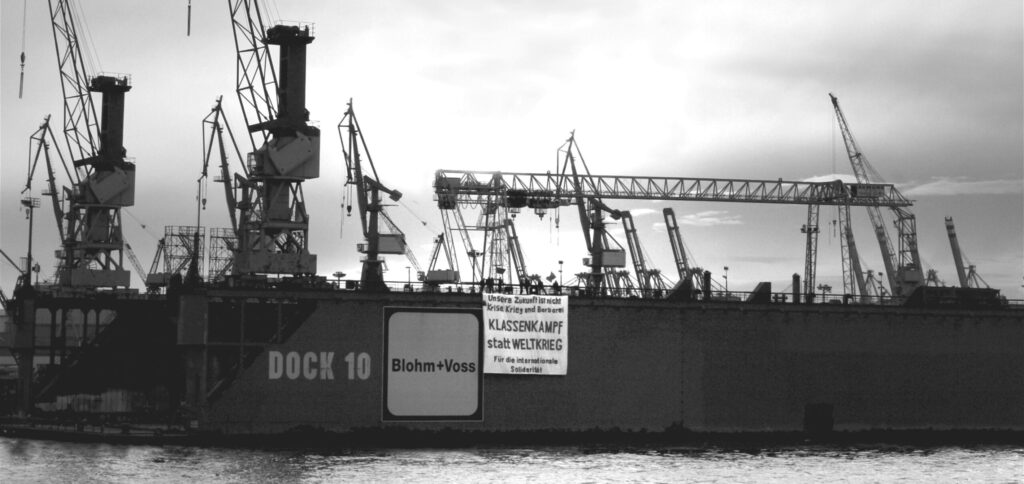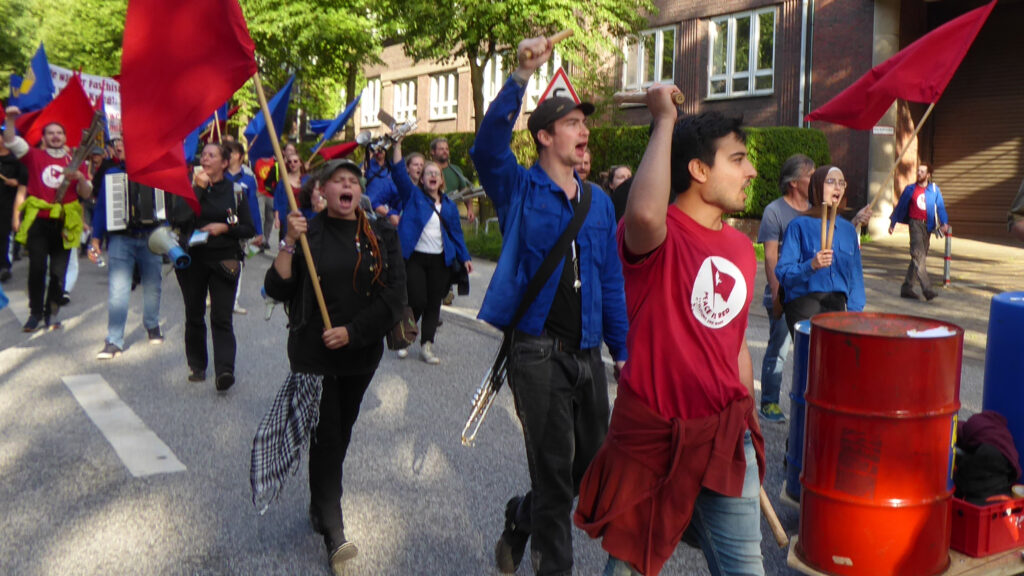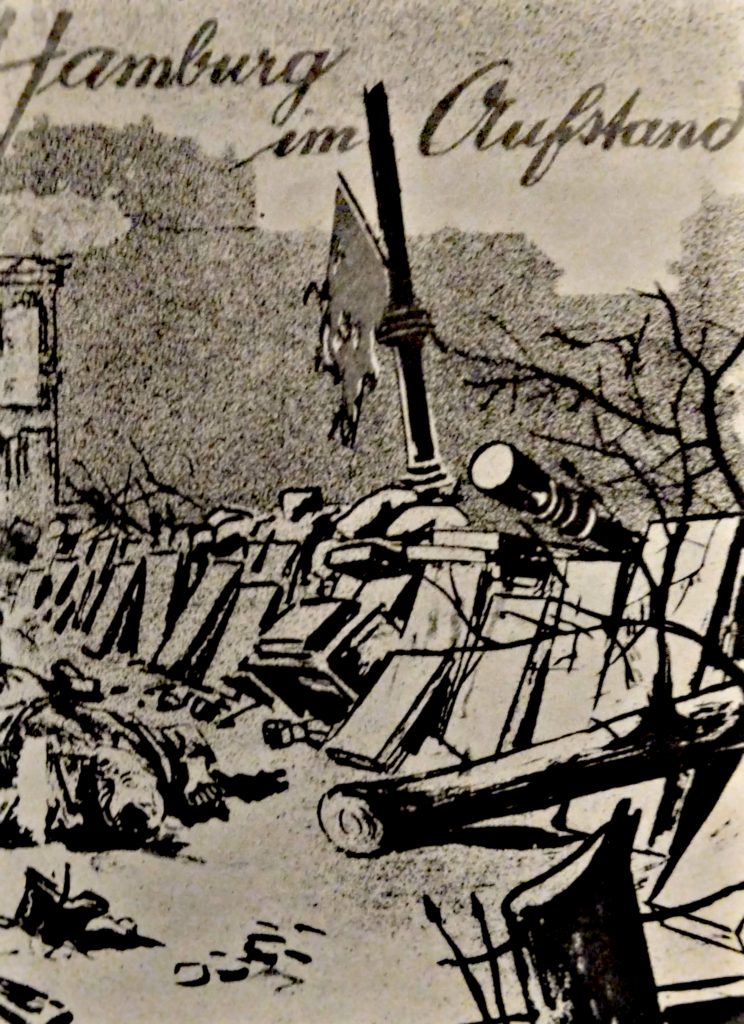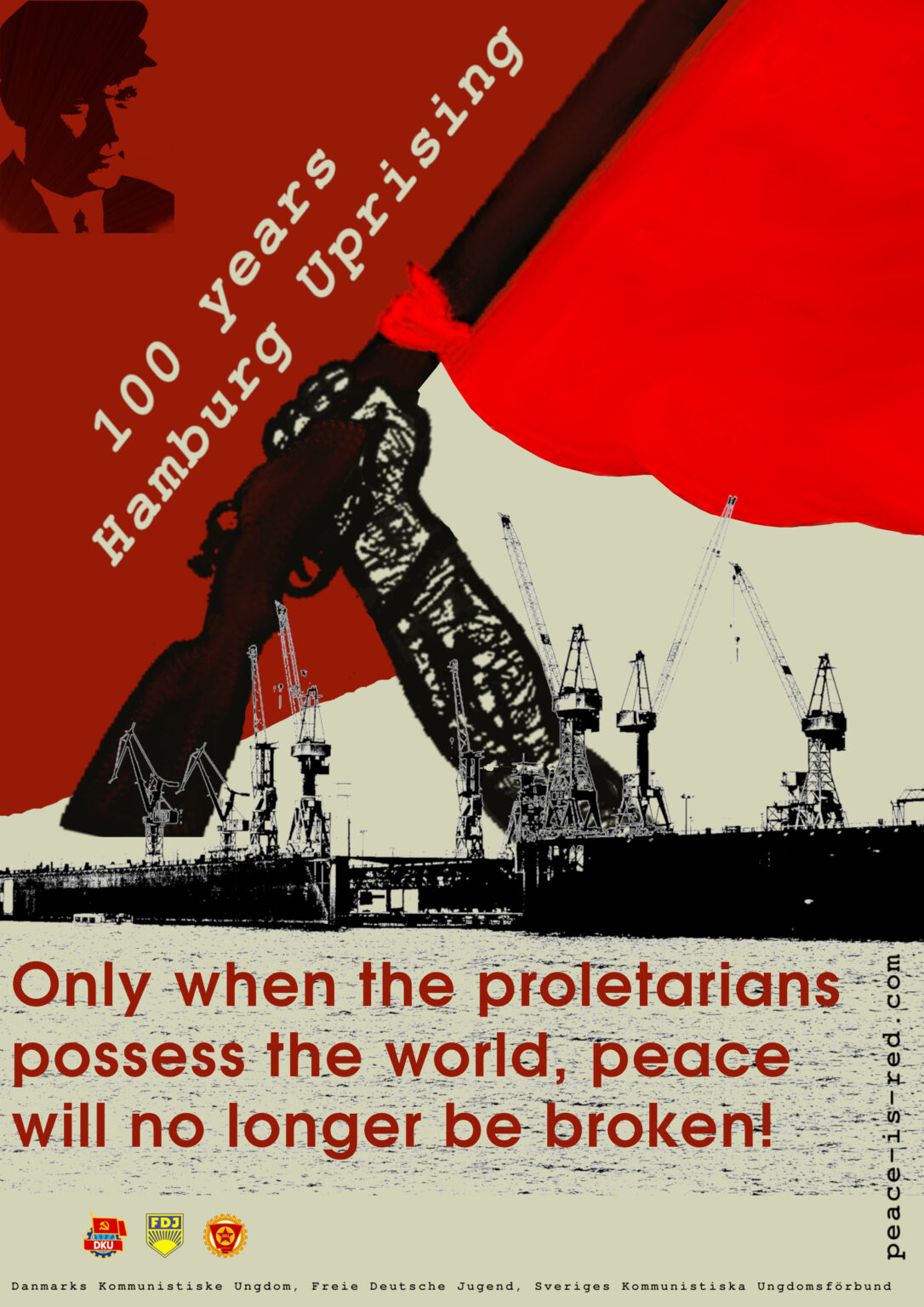
“In the days of Hamburg, the workers saw the bourgeoisie on the brink of the abyss.”
Ernst Thälmann

What are the most important lessons of the Hamburg Uprising?
1. A small number of proletarians, who had fought with the greatest heroic courage under the banner of the dictatorship of the proletariat, was successful in militarily withstanding the twentyfold superiority of the brilliantly organized and armed bourgeois troops.
2. The everlasting glory of the Hamburg October fighters lies in the fact that they took up arms in a revolutionary situation, although they did not have the victory 99 percent under their belts. Leninism teaches that one must engage in the struggle when there are serious chances of victory. There is never a guarantee of victory in advance. Defeat in such a struggle is a thousand times more fruitful and valuable for the future of the class struggle than a retreat without striking a blow.
3. The uprising led to defeat because it remained isolated, as it did not receive immediate support in Saxony and throughout the entire country. Even if workers in a single location engage in the fight with the greatest heroism, driven by the strongest mass movement: They will be defeated unless the proletariat across the entire country joins them. In precisely this, organizing and uniting of the whole working class of all industrial centers and cities throughout the country, lies THE ROLE OF THE COMMUNIST PARTY as the vanguard of the proletariat. This is exactly why we need a firm, completely united, thoroughly fused, and absolutely disciplined party.
4. It is not true that the Hamburger uprising was a coup, instead it was driven by the sympathy of the broadest masses. Even the Police Senator Hense had to angrily admit that the Social Democratic workers in Hamburg, the most right-wing organization of the SPD, and with them “the widest circles of the population stood with the Communists.” Our weakness lay only in our failure to understand how to firmly rally these masses around us, to bring them over to our side in all partial struggles in time, to form with them a united front against the Social Democratic leaders.
5. In order to achieve victory on a much larger scale in the inevitably recurring Hamburg struggle, we must penetrate the masses like a wedge, unite them with us through a thousand links, and form a genuine proletarian united front with millions of workers. A large revolutionary wing must emerge within the trade unions and all non-party organizations of the working class, which, together with the Communists, will become the driving force behind the upcoming struggles.
6. One deficiency was found especially notable during the October days in Hamburg was the absence of a strong council movement. This fact has not yet been sufficiently understood within the party. The councils are the organs that gather the millions-strong masses of the proletariat in a revolutionary situation, forming the backbone of the struggle. We must not forget this lesson even in the current period between two revolutions.
7. The seizure of power by the proletariat is not a one-time act. It does not merely consist of the military struggle against the bourgeoisie’s troops but must be prepared through years of persistent work by the Communist Party and the entire proletariat. The future victors over the bourgeoisie must be educated, prepared, and organized through countless partial struggles. This is OUR MAIN TASK in the present period.
8. It is not true that through the defeat of the October uprising in 1923 a unique revolutionary situation was “missed” once and for all. The defeat of 1923 was not permanent, just as the defeat of the Spartacus League in the Noske days of 1919 was not permanent. The stabilization of bourgeois Germany does not have a long breath: despite the Dawes Plan and the Pact of Guarantees. Rather: Because of the Dawes Plan and the Pact of Guarantees. The capitalist stabilization in Germany experiences its first “shortness of breath” now. The great result of the Hamburg uprising is that the workers witnessed the seemingly invincible class enemy in all its weakness for three times twenty-four hours. During the Hamburg days, the workers saw the bourgeoisie on the brink of the abyss. And they will never forget this moment! We are not heading into a swamp but towards new struggles and with absolute necessity in Germany towards the second revolution. That is why the Hamburg uprising does not belong to “history” but serves as a preparation for the future.
9. The uprising was an ideal example of the brilliant and smoothly functioning organization of revolutionary struggle. However, it also revealed the greatest organizational mistake of our party. The Hamburg fighters had the full sympathy of the workers in the factories but lacked organizational connections with them. The complete uselessness and fatal backwardness of our old Social Democratic residential organization became evident. The electoral machine is not suited for the barricades! The most significant gap in the Hamburg fighting front was the absence of communist FACTORY CELLS. In a similar situation in the future, a fighting force like the Hamburg fighters will be invincible, when relying on firmly rooted cells in all workplaces and the unity of the broadest masses of workers.
10. The greatest and most valuable lesson of the Hamburg uprising is the magnificent fulfillment of the ROLE OF THE COMMUNIST PARTY IN THE PROLETARIAN REVOLUTION. The Communists were not in words but indeed the vanguard, the leadership, the guiding light of the working class. They provided the movement with a clearly defined goal, a precisely formulated program: the dictatorship of the proletariat. In this regard, the Hamburg struggle stands at a much higher level than all previous movements. The March Action of 1921, for example, bears no comparison with the Hamburger uprising. Only because the party firmly held the leadership of the struggle in its hands, the Hamburg revolutionaries, for the first time in Western Europe, understood and fulfilled the Marx-Engels lesson, that “the uprising is an art and that the chief rule of this art is the OFFENSIVE waged with daring courage and greatest determination.”
Ernst Thälmann





